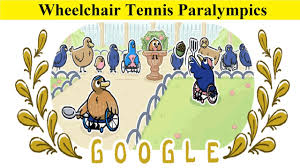“Remembering Karl-Heinz Schnellinger: A tribute to the legendary German defender who played in four World Cups and left an indelible mark on football. His legacy continues to inspire.”
Introduction
In the vast tapestry of football history, few names evoke as much respect and admiration as Karl-Heinz Schnellinger. A stalwart of German football, Schnellinger’s career was a testament to skill, determination, and unwavering dedication. His passing at the age of 85 marks the end of an era, but his legacy lives on. This article takes a deep dive into the life and career of Karl-Heinz Schnellinger, celebrating his contributions to football and reflecting on the indelible mark he left on the sport.
Early Life and Beginnings
A Humble Start
Born on March 31, 1939, in Düren, Germany, Karl-Heinz Schnellinger’s journey to football greatness began in the unassuming streets of his hometown. Like many young boys of his generation, he was enamored with the sport, kicking a ball around whenever he had the chance. Little did he know, these early days would set the foundation for a remarkable career.
First Steps in Professional Football
Schnellinger’s professional career kicked off at the tender age of 18 with 1. FC Köln. His versatility and defensive prowess quickly caught the eye of coaches and fans alike. It wasn’t long before he made his debut for the national team, showcasing a level of skill and maturity that belied his years. His performance on the field was a clear indicator of the greatness that was yet to come.
Rising Through the Ranks
National Team Call-Up
The late 1950s and early 1960s were a golden era for German football, and Schnellinger was at the heart of it. He received his first call-up to the national team in 1958, marking the beginning of a long and illustrious international career. His ability to read the game, combined with his physicality, made him an invaluable asset to the team.
European Success
In 1962, Schnellinger made a significant move to Italy, joining Serie A giants AC Milan. This transition marked a new chapter in his career, one filled with triumphs and accolades. With Milan, Schnellinger won multiple domestic and international titles, including the coveted European Cup. His performances in Italy solidified his reputation as one of the best defenders of his generation.
The World Cup Journeys
1958: The Debut
Schnellinger’s World Cup debut came in 1958, when he was just 19 years old. Although Germany didn’t clinch the title, the tournament was a learning experience for the young defender. It was clear that Schnellinger was destined for greatness on the world stage.
1962: Rising Star
The 1962 World Cup in Chile saw Schnellinger solidify his place in the German squad. His performances were nothing short of stellar, and he was named in the tournament’s All-Star team. Despite Germany’s quarter-final exit, Schnellinger’s reputation continued to soar.
1966: The Heartbreak
Arguably, one of the most memorable and heartbreaking moments in Schnellinger’s career came during the 1966 World Cup in England. Germany reached the final, only to be defeated by the host nation in a controversial match. Schnellinger played his heart out, but it wasn’t enough to secure the victory. Despite the loss, his dedication and sportsmanship earned him widespread admiration.
1970: The Classic Encounter
Schnellinger’s final World Cup appearance came in 1970, in what many consider one of the greatest matches in football history: the semi-final clash between Germany and Italy. The game, famously known as the “Game of the Century,” saw Schnellinger score a dramatic equalizer in the dying moments of regular time. Although Germany ultimately lost, Schnellinger’s goal remains etched in the annals of football lore.
Legacy and Impact
A Model Professional
Throughout his career, Karl-Heinz Schnellinger exemplified professionalism and dedication. His ability to adapt to different playing styles and positions made him a versatile asset for any team he played for. Off the field, his humility and sportsmanship earned him respect from peers and fans alike.
Influence on Future Generations
Schnellinger’s impact on football extends beyond his playing days. As a mentor and coach, he inspired countless young players to pursue their dreams. His legacy is evident in the numerous defenders who cite him as a role model and inspiration.
Conclusion
Karl-Heinz Schnellinger’s passing at the age of 85 is a significant loss to the football world. His contributions to the sport, both as a player and a mentor, have left an enduring legacy. From his humble beginnings in Düren to his stellar career on the world stage, Schnellinger exemplified what it means to be a true football legend. His story will continue to inspire future generations, ensuring that his memory lives on in the hearts of football fans around the globe.
In remembering Karl-Heinz Schnellinger, we celebrate not just a great defender, but a man who embodied the spirit of the beautiful game. Rest in peace, Karl-Heinz. Your legacy will never be forgotten.





